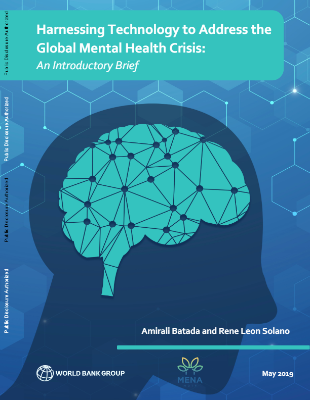The mounting challenges of global mental health are affecting millions of individuals throughout industrialized and developing regions of the world. Though the underlying driving forces may vary across contexts, the consequences of mental illnesses are experienced globally, resulting in rising social and economic costs for governments, communities, and families attempting to manage the growing challenge. Global estimates illustrate that mental illness contributes to 32.4% of years lived with disability (YLDs) and 13% of disability-adjusted life years (DALYs). Presently, in excess of 300 million people globally experience depression, while an estimated 800,000 deaths from suicide are linked to the disease, annually. “Depression is the leading cause of disability globally”, coupled with anxiety disorders, contributes to an estimated US$1.15 trillion of lost economic output and 12 billion days of lost work each year, resulting from diminished productivity. Mental, neurological and substance use disorders impact annual economic output, with losses contributing to US$2.5-8.5 trillion globally; this figure is projected to nearly double by 2030.6 For individual households, out of pocket expenditures constitute the primary method of payment for mental health care in 40% of low income countries. Aside from having a significant economic impact, mental illness is a cross-cutting issue that affects a breadth of development objectives, including eight of the Millennium Development Goals (MDGs).8 The disease’s prevalence and impact on global development contributed to the inclusion of mental illness in the UN Sustainable Development Goals (SDGs) in 2015.
One key factor hindering the progress of addressing mental illness lies in the structural imbalance between inadequate capacity to extend support, and the high growth rate of individuals requiring treatment. On average, nearly half the global population resides in countries where there is one psychiatrist per 200,000 people. This reality is reflected primarily in low and middle income countries (LMICs) where, for example, 76-85% of individuals with a severe mental disorder do not receive treatment for their illness. Addressing this gap in a timely and effective manner will warrant innovative approaches that operate in parallel with traditional strategies. This approach will assist in resolving the key challenges and barriers associated with the planning, design and deployment of effective mental health services, and reducing the risk factors associated with mental illness. The application of emerging technologies holds promise in potentially addressing different dimensions of the global mental health challenge. This brief explores how select technologies and tools could potentially garner new insights, build efficiencies, and scale support in responding to the mental health challenges unfolding in a wide array of communities and contexts.











